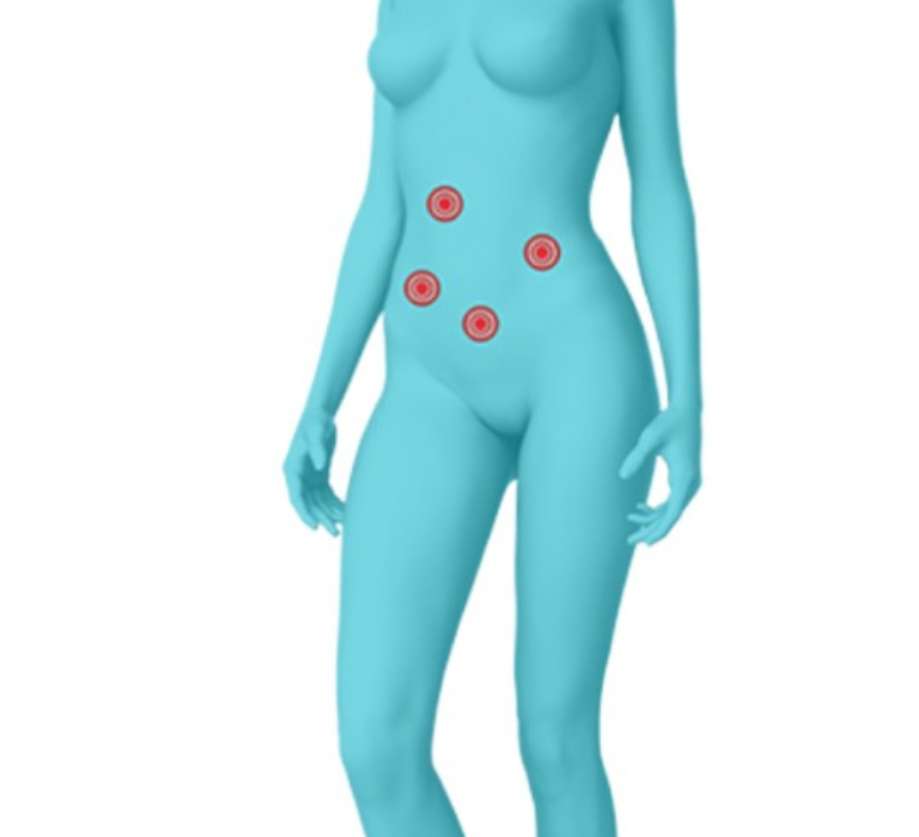What is an Incisional Hernia?
When a portion of an internal organ or abdominal tissue protrudes through the abdominal wall after an abdominal surgery in the past, it is called a protrusion. An incisional hernia occurs when abdominal tissue or organ pieces protrude through the abdominal wall. Surgical scars on the abdomen frequently form along or near them.
The majority of incisional hernias are not dangerous. They can, however, become larger with time, impairing regular breathing and movement. Larger hernias can be more difficult to treat than smaller ones. An incisional hernia may require surgery to repair. People may not need surgery if their incisional hernia is tiny, not causing any problems, and has a low risk of creating complications. The blood supply to the bulging abdominal tissue can be cut off in rare circumstances. People will require rapid medical attention because this is a medical emergency.

Symptoms of Incisional Hernia
A protrusion around the incision site is the most visible symptom of an incisional hernia. When you strain your muscles, such as when you lift something, stand up, or cough, it is most evident. In case anyone has abdominal surgery earlier, they may observe the below-mentioned symptoms:
Causes of Incisional Hernia
When the abdominal muscle relaxes as a result of a surgical incision, incisional hernias develop. This can grow for a wide range of reasons. Some of the most common causes are when individuals who engage in excessive physical activity following surgery, gain significant weight or raise abdominal pressure in any other way before the incision is fully healed are particularly vulnerable. Incisional Hernias are most likely to develop between three and six months after surgery, but they can occur before or after this time.
Risk factors
After surgery, some variables can increase the risk of developing an incisional hernia. An incisional hernia is more likely to occur if a person has:
Treatment/Repair of Incisional Hernia in Dubai
The treatment for an incisional hernia varies based on the circumstances. A doctor will take into account a person’s overall health, the severity and location of the hernia, and their level of physical activity. Treatment is also determined by whether or not an incisional hernia has hampered earlier abdominal surgery. Before starting the treatment, an experienced surgeon may need to repair the previous surgery. People may not need surgery if their hernia is tiny, not causing issues, and not expected to develop complications. An abdominal binder may be worn around the abdomen to support the abdominal wall.
If an incisional hernia develops within a few weeks of abdominal surgery, a doctor may decide to wait to allow the abdominal wall to mend and recover. If someone requires surgical therapy, they can choose between two options:
Open repair of Incisional Hernia
An incision is made at the hernia site during an open hernia repair. A surgeon will close the opening by moving tissue, intestine, and other organs comprising the hernia back into the abdomen. Mesh patches may also be used to reinforce the area where the hernia occurred. These mesh patches are applied to the tissue surrounding the hernia and will be absorbed by your abdominal wall over time.
Laparoscopic Incisional Hernia repair
Instead of one major cut, laparoscopic hernia repair uses many tiny cuts. These incisions are filled with hollow tubes that expand your belly to make your organs more apparent. To accomplish the surgery, a surgeon will inject surgical equipment, including a small camera, into the tubes. A laparoscopic repair can also benefit from mesh. Although laparoscopic surgery is less invasive, you may be able to leave the hospital sooner and have a decreased risk of infection; it may not be as successful for hernias that are particularly large or severe.
Book an Appointment for Incisional Hernia Surgery in Dubai
People who experience any of the symptoms of an incisional hernia should see a doctor for a diagnosis and treatment plan. If a person has any of the signs of a strangulated hernia, they should seek immediate medical attention.
Due to a weakened abdominal wall, an incisional hernia can occur following abdominal surgery. Around the scarring area, abdominal tissue or sections of the intestines can bulge through the abdominal wall. An incisional hernia may require surgery to treat. An incisional hernia can be avoided with proper rest and rehabilitation following surgery.
Are you looking for an authorized surgeon who can help you in overcoming this kind of health problem? If yes, then book an appointment for Dr. Ali Reza. Being one of the best and certified European Surgeons in UAE, he has excellent skills and knowledge in Oncological as well as Obesity surgery. Further, his expertise includes laparoscopy in trauma and bariatric surgery, with a focus on hernia repair. Give yourself a chance to enjoy life by booking an appointment today!
